
by Roseman Dental | Jan 15, 2021 | Dental Clinic Blog, Oral Health, Roseman Dental - NV, Roseman Dental - UT
News flash – oral health is so much more than just your teeth! Your mouth is the window to the health of your body. Oral health includes not only the health of your teeth, but also your gums, bones, ligaments, muscles, glands, and nerves. Your ability to speak, smile, smell, taste, touch, chew, swallow, and make facial expressions to show feelings and emotions is impacted negatively or positively based on the condition of your oral health. Having good oral health gives an individual confidence in their self-image and sense of well-being.
Mouth and Body Connection
If your mouth is not healthy you could face far more serious consequences than just a simple toothache; however, the mouth is a fascinating thing. It can warn you of the start of more serious health conditions. It can show signs of nutritional deficiencies, general infection, and the onset of systemic diseases – diseases that can affect other parts of the body or the entire body – such as diabetes and AIDS. Diabetes complications can occur when you have inflammation of the gum tissue and periodontal disease (a disease more common in diabetic patients). These, in combination, can make it harder to control your blood sugar and make your diabetes symptoms worse.
Gum disease, an indicator of poor oral health and a chronic inflammatory condition, is linked to illnesses such as:
- Heart Disease – A disease that is most known as coronary artery disease or cardiovascular disease. This disease causes decreased blood flow to the heart which can cause a heart attack.
- Respiratory Disease – A disease that affects the lungs and other parts of the respiratory system. Respiratory diseases may be caused by infection, smoking tobacco, or breathing in secondhand tobacco smoke, radon, asbestos, or other forms of air pollution. Respiratory diseases include asthma, chronic obstructive pulmonary disease (COPD), pulmonary fibrosis, pneumonia, and lung cancer. Also called lung disorder and pulmonary disease.
- Osteoporosis – A bone disease that occurs when the body loses too much bone, makes too little bone, or both. As a result, bones become weak and may break from a fall or, in serious cases, from sneezing or minor bumps.
- Rheumatoid Arthritis – An autoimmune and inflammatory disease where your immune system attacks healthy cells in your body by mistake, causing inflammation (painful swelling) in the affected parts of the body.
Good Oral Health = Good Overall Health
It is important to establish good hygiene habits so that your oral health does not negatively impact your overall health. There are a variety of steps that can be taken to make sure that your oral health is in tiptop shape.
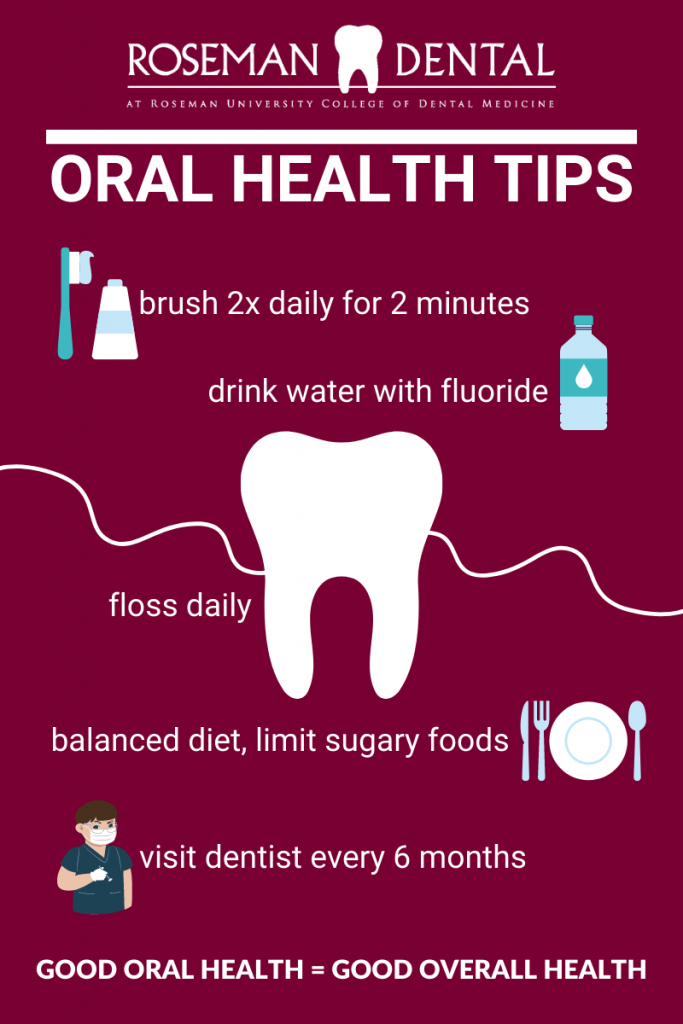
- Brushing your teeth twice a day & after every meal for two minutes with fluoride toothpaste
- Drinking water with fluoride
- Flossing daily
- Eating a balanced diet
- Limiting sweet snacks between meals
- Staying away from sugary foods and drinks and try not to sip or eat on them all day. If you want a sugary food or drink, have one at mealtimes.
- Visiting your dentist at least every six months for cleanings, prevention and treatment of cavities
Good Oral Health Saves Lives
Taking preventative steps and teaching your family good oral hygiene routines now can not only save their oral health, but also save their lives. With the new year, set a new goal to make your oral health a priority. Last year caused many of us to get behind on our oral health due to dental offices being closed. Dental offices are back up and running so don’t delay, schedule your appointment and make sure your oral health is in tiptop shape.
Contact Roseman Dental to schedule your dental exam.
Nevada Location
Utah Location

by Roseman Dental | Jan 7, 2021 | Dental Clinic Blog, Oral Health, Roseman Dental - NV, Roseman Dental - UT
A New Year is not only a fresh start, but a great time to make positive changes in our lives. One of the most common new year resolutions is to have a healthier, everyday lifestyle. Whether it’s eating better, being more physically active, or getting your wellness in order – looking out for your overall health is important. This is especially true when it comes to your oral health.
Your oral health is directly tied to your overall health and your smile is a reflection of good oral health. There are several dental procedures that can help you gain a fresh smile in the new year.
Routine Dental Check-ups
Twice a year (every six months) dental appointments are essential to your oral health. These routine visits not only prevent oral disease but allow for early detection of any problems that would otherwise include more extensive (and expensive) treatments to fix. Staying up to date on your semi-annual dental visits will keep you on track with any treatments you may need and save you money in the long run.
Dental Implants
If you’re missing teeth, dental implants are great way to fill the gaps and get that fresh smile you’ve been looking for. Dental implants are artificial roots that are placed in your jawbone and bond with your natural bone. They are the strongest devices available to support new teeth. In addition, they allow new teeth to look, feel, and function naturally – giving you the confidence to smile again!
Root Canal
A root canal is often thought of as a painful procedure, but it’s actually relatively painless and extremely effective. This procedure is designed to eliminate bacteria from the infected root canal and save the natural tooth. A root canal is very similar to a routine filling and can usually be completed in one or two appointments. Therefore, you’ll be back to smiling, biting, and chewing in no time.
Orthodontic Treatment
Orthodontic treatments are for everyone and work to correct teeth and jaws that are positioned improperly. Modern braces come in a variety forms – traditional metal, clear, and Invisalign®. Each form helps to straighten teeth which prevents additional health problems and boosts self-confidence. When teeth are properly aligned it’s easier to practice good oral hygiene such as brushing and flossing. In addition, orthodontic treatment will help give you the freedom to smile without holding back!
Your Smile Matters
Your smile conveys so much to yourself and the world. Studies show that the mere act of smiling makes people happy. Now is the time to spread happiness with a fresh smile. Let 2021 be the year you’re proud to share your smile with the world! Contact Roseman Dental to schedule an appointment for your routine cleaning or ask about our other services that may benefit or improve your dental health.
Utah Location
Nevada Location
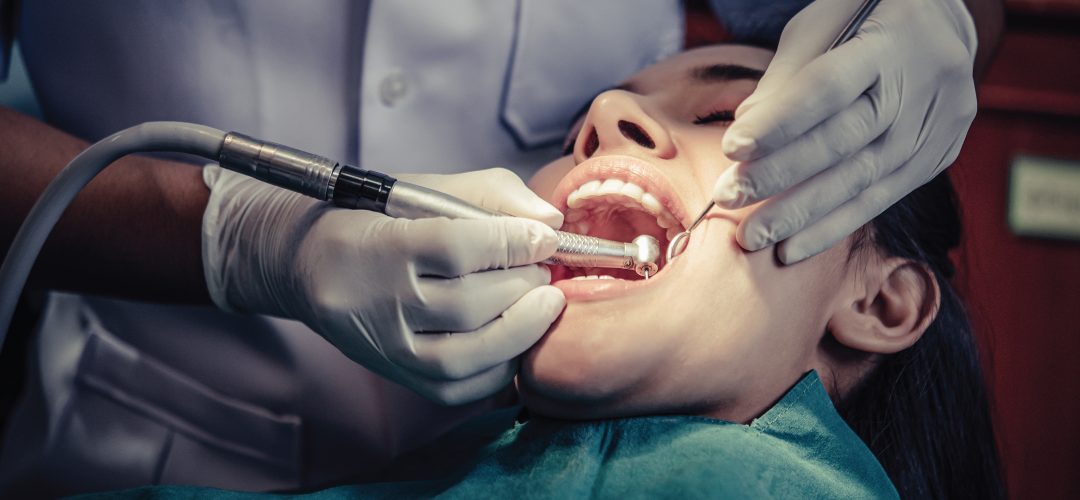
by Roseman Dental | Jan 5, 2021 | Dental Clinic Blog, Roseman Dental - NV, Roseman Dental - UT
Dental fillings are one of the most common dental procedures performed by dentists today and are used to treat cavities and fix damage caused by decay. According to the American Dental Association, about 175 million filling operations are performed in the United States every year. That is a lot of fillings, but what exactly is a filling?
Types of Fillings
There are 5 types of fillings.
- Amalgam Filling – This type of filling, also known as a silver filling, has been used for over 150 years. Amalgam is defined as a mixture or blend. In the dental world it is a mixture of metals – about 50 percent mercury with the remaining 50 percent being comprised of tin, copper, silver, or zinc. Amalgam fillings are the least expensive, very strong, and last a long time; however, it is silver in color so it’s not as visually appealing when opening your mouth.
- Composite Filling – This type of filling is ideal if you want your filling to look natural and match your other teeth. Composite fillings can be closely matched to the color of your existing teeth and are very desirable if you need a filling on your front teeth or the visible parts of your teeth. Although a composite filling is more aesthetically pleasing, they are not as durable as amalgam fillings. That being said, a typical composite filling can last five years, sometimes longer, if you practice good oral hygiene.
- Metal – This type of filling, also known as a gold filling, is extremely durable and can last upwards of 10 to 15 years; however, the cost of a metal filling can be 10 times higher than the cost of a silver amalgam filling. The look of this filling is also not as aesthetically pleasing as a composite filling.
- Ceramic – This type of filling is typically made from porcelain and is more resistant to staining than a composite filling. It lasts more than 15 years, but can cost as much as a gold metal filling.
- Glass Ionomer Filling – This type of filling is commonly used for fillings that are below the gum line and fillings on young children. It is made from acrylic and a special type of glass material. This filling releases fluoride into the mouth which assists in preventing more decay and helps to protect the tooth. This type of filling is comparable to the cost of a composite filling.
The type of filling you receive is based on factors such as location and extent of the decay, cost of the filling material, insurance coverage, and of course what your dentist recommends.
How to Prevent Cavities
Cavities are permanently damaged areas in the hard surface of your teeth that develop into tiny openings or holes. If cavities are not treated, they can cause sensitivity, pain, infections, and can even cause you to lose your teeth. Although cavities are treated by fillings, there are things you can do to prevent cavities from occurring and avoid needing a filling . . . or two or three.
- Brush your teeth twice a day for two minutes with fluoride toothpaste.
- Drink water with fluoride.
- Floss daily.
- Eat a balanced diet.
- Limit sweet snacks between meals.
- Stay away from sugary foods and drinks and try not to sip or eat on them all day. If you want a sugary food or drink, have one at mealtimes.
- Visit your dentist regularly.
If you’re experiencing pain or it’s been a while since you’ve seen a dentist, Roseman Dental can help. Contact us today.
Utah Location
Nevada Location
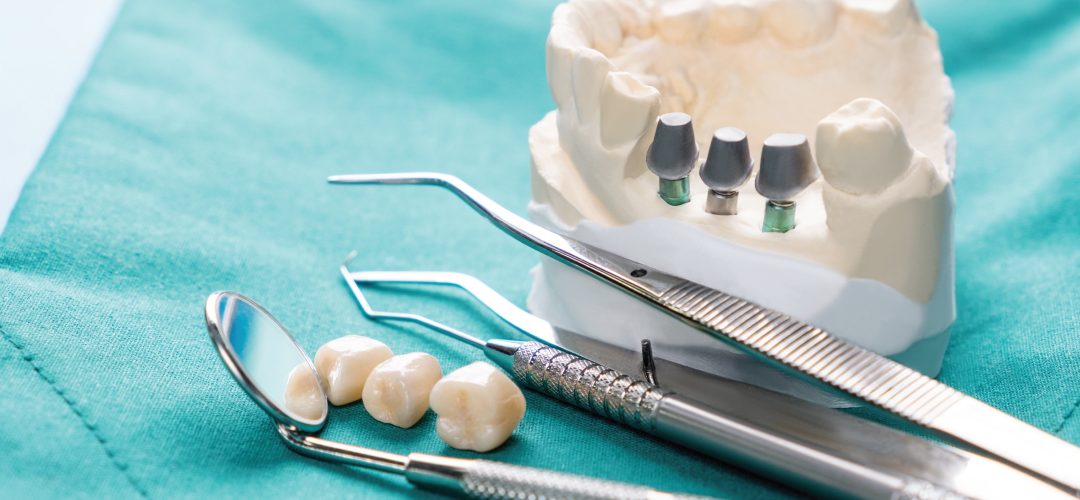
by Roseman Dental | Dec 9, 2020 | Dental Clinic Blog, Roseman Dental - NV, Roseman Dental - UT
Millions of Americans suffer tooth loss. An estimated 178 million Americans are missing at least one tooth and roughly 40 million Americans are missing all their teeth. The most common causes of tooth loss are tooth decay, periodontal disease (gum disease) or injury. In adults, 70 percent of tooth loss is caused by gum disease. Missing teeth can affect the esthetics of your face, make it more difficult to chew your food, talk, and weigh emotionally on some. Many people feel less confident about their smile when they are missing teeth.
If you are missing teeth, dentures and implants are viable options for you.
Dentures
Dentures or false teeth are synthetic replacements for missing natural teeth. Some dentures are designed to replace a few missing teeth or can replace all teeth, gums, and surrounding tissues. There are two types of dentures – complete and partial.
Complete Dentures
Complete (full) dentures are meant to replace all teeth and are removed nightly. There are three types of removable complete dentures – conventional, immediate and implant-retained. Conventional dentures are made after the teeth have been removed and the gums have healed. This type of complete denture can be placed about six to 12 weeks after the teeth have been removed, but the patient is without teeth for that time. An immediate complete denture is made prior to teeth extraction and is placed immediately after teeth have been removed. Although the patient goes home with teeth, bones and gums shrink over time and this type of complete denture requires more adjustments to fit properly during the healing process. An immediate complete denture should only be considered a temporary solution until the conventional complete denture can be made. Implant-retained dentures (overdentures) click into place and latch onto the metal posts of implants, also known as abutments. This type of complete denture increases stability and improves chewing function better than the conventional or immediate denture option.
Complete dentures should be the last option after all other tooth restorations are decided to be ineffective by you and your dentist.
Partial Dentures
Partial dentures are used when one ore more natural teeth remain in the upper or lower jaw and can be fixed or removable. There are a few options when it comes to fixed partial dentures. Implant-supported bridge is one fixed option and uses implants as abutments. This type of partial denture replaces a few missing teeth in a row with two dental implants. Tooth-supported fixed bridge, is another fixed partial denture option, grinds away healthy adjacent teeth that are used to attach and support the bridge. Resin-bonded bridge, the last option for a fixed partial denture, is also known as a Maryland Bridge. This type of denture has wings on each side of the artificial tooth to attach to healthy, adjacent teeth but usually doesn’t involve preparing, or grinding down those adjacent teeth. This option only works well for front teeth that don’t endure the biting and chewing that back teeth do.
Removable partial dentures can either be cast or acrylic. Cast are made of tissue colored acrylic (gums), replacement teeth, and a metal framework that holds all the materials together. Acrylic or “flippers,” are made of acrylic resin and mimic the look and function of natural teeth. They come with or without clasps of shaped wire. Acrylic false teeth are temporary because a patient’s gums entirely support the teeth.
Dentures are not for everyone but could be the best choice for individuals whose gums and jaw are weak or unhealthy.
Implants
Dental implants are artificial roots made from titanium rods or screws that are fused to your jawbone and bond with your natural bone. These rods or screws serve as a base for a permanent tooth replacement – crown – that mimic the look and feel of a natural tooth and serve as a sturdy base for supporting one or more artificial teeth. Once the screw or rod is placed, a connector – abutment – is placed on top of the dental implant to hold and support your crown which is custom-made to match your natural teeth and fit your mouth functionally and esthetically. Dental implants are the only dental restoration option that preserves natural bone and helps to stimulate bone growth.
Dentures vs. Implants: A Comparison
Appearance
Dentures are not permanent whereas implants are permanent and look, feel and act like your own teeth.
Speech
Dentures, specifically poor-fitting ones, slip in the mouth causing you to mumble or slur your words. Implants don’t slip because they are permanent which allows you to speak normal without the worry of your teeth slipping.
Comfort
Dentures tend to be less comfortable because they are removable. Common complaints with dentures include bulkiness, excessive saliva, soreness and irritation. Implants are more comfortable because they become part of you by fusing to your jawbone. Because of this, dental implants feel natural and fit well in your mouth.
Eating
Dentures are known to slide and can make it difficult to chew. Dental implants work like your own teeth allowing you to eat your favorite foods without pain or difficulty.
Self-Esteem
Both dentures and dental implants restore your smile and help you feel better about yourself. Dental implants look more natural compared to dentures, but if your denture is done correctly most people aren’t able to tell the difference.
Longevity
Dentures typically need to be replaced every five to eight years. Dental implants, if taken care of, can last as long as natural teeth.
Convenience
Dentures are removable therefore less convenient. Dental implants are permanent and get rid of the embarrassing inconvenience of removing dentures and dealing with the messy adhesives that dentures require.
Cost
The price of dental implants varies, depending on how many additional procedures you need to undergo. It is possible that your insurance will pay up to 50% of the cost of your dentures, whereas dental implants are much less likely to be covered under your dental insurance plan. However, given that dentures tend not to last as long, you should factor in the expense associated with replacing them. This alone could make dentures more expensive than dental implants in the long run.
So, Dentures or Implants?
It is important to consult with your dentist before you decide on dentures or implants because each case is different. If you are missing a tooth or multiple teeth, Roseman Dental can help. Contact us today.
Utah Location
Nevada Location
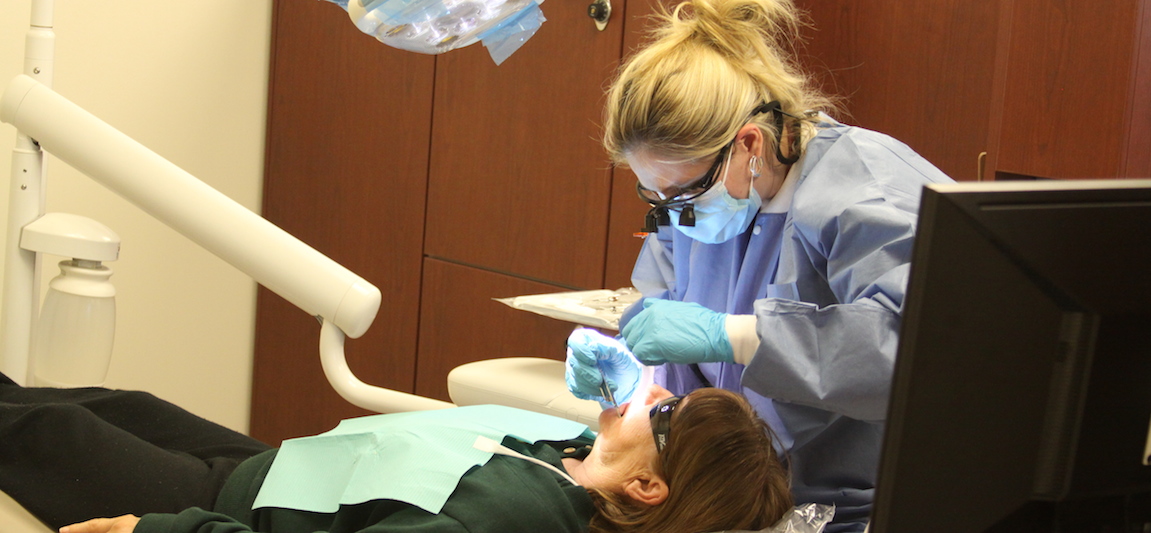
by Roseman Dental | Nov 30, 2020 | Dental Clinic Blog, Roseman Dental - UT
Don’t let the lack of dental insurance stop you from taking care of your oral health. Although dental insurance may not be possible or available for you or your family, there are other options out there. It is important that you make your oral health a priority.
Oral Health Contributes to Your Overall Health
Did you know that problems in your mouth can affect the rest of your body? According to the Mayo Clinic, your mouth is the entry point to your digestive and respiratory tracts. Without proper oral hygiene, bacteria in your mouth can reach levels that might lead to oral infections, such as tooth decay and gum disease. In addition, lack of good oral health can lead to various diseases such as Endocarditis, Cardiovascular disease, pregnancy and birth complications, or pneumonia. Although this information can be scary, there are options other than dental insurance that can allow you to keep regular oral health checkups for you and your family.
Oral health is a vital part of your overall health and lack of dental insurance should not be one of the contributing reasons for poor oral and overall health.
If you do not have dental insurance, what are your options?
Roseman Dental understands the importance of oral health and that is why we have created an affordable Dental Membership Plan for those without dental insurance. Membership is available for individuals and additional family members and is specific to our clinic. Our plan offers 100 percent coverage on all diagnostic services, radiology (except Cone Beam CT’s), and preventative services. In addition, our plan offers 20 percent off other dental services including Cone Beam CT’s. This discounted coverage is in addition to our already reduced prices which are typically lower than what you would find at a traditional dental office.
Membership Dues Per Month
$12 – First Family Member
$7 – Second Family Member
$5 – Each Additional Family Member
Roseman Dental offers two options for paying for your plan.
Option 1
The first four months dues are to be paid in advance. Once services are rendered and discount has been received for any family member on the Dental Membership Plan the four months of dues are non-refundable for any/all family members on the plan. After which, membership fees will be collected monthly with a credit card on file with monthly dues processing on the first of each month.
Option 2
Pay annually for the dues in full. Once services are rendered and discount has been received for any family member on the Dental Membership Plan four months of dues are non-refundable for any/all family members on the plan as well as the dues for any month thereafter where the discount was received and no cancellation in writing had been received.
Dental Membership Plan Coverage Highlights
100 % COVERED
- Examinations including new patient exams, periodic exams, and limited exams.
- Radiographs including full mouth radiographs, bite wig radiographs, periapical radiographs, and panorex.
- Preventative services including adult prophy, child prophy, fluoride varnish, periodontal maintenance, and sealants.
20 % COVERED
- Crowns & bridges
- Extractions & oral surgery
- Fillings
- Implants
- Periodontal treatment
- Removable prosthodontics (complete & partial dentures)
- Root canals & surgery
- Nitrous oxide/oral sedation
- Miscellaneous services
- Cone beam CT
For more information and to review the terms and limitations on Roseman Dental’s affordable Dental Membership Plan click here.
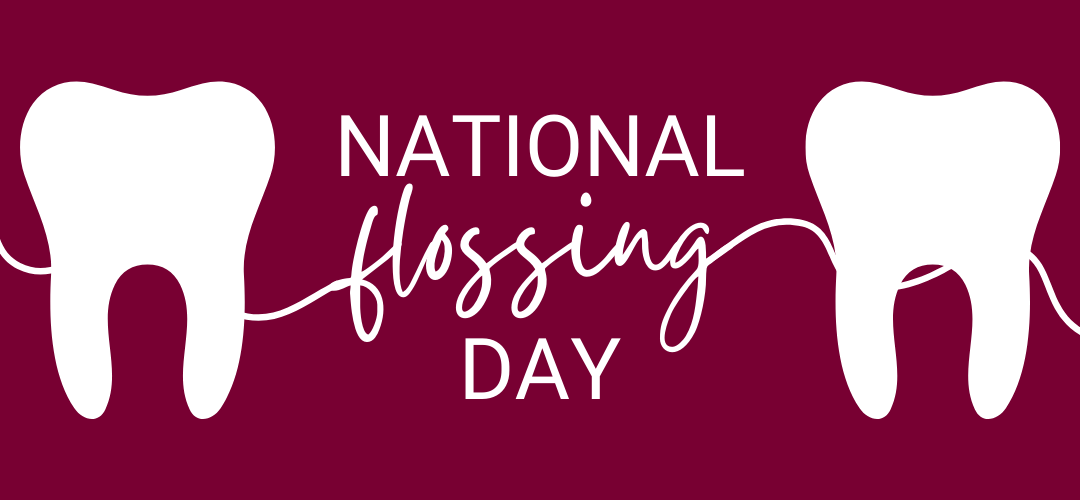
by Roseman Dental | Nov 24, 2020 | Dental Clinic Blog, Oral Health, Roseman Dental - NV, Roseman Dental - UT
In November of 2000, the National Flossing Council created National Flossing Day to educate patients about the importance of keeping teeth and gums in pristine condition. Occurring annually the day after Thanksgiving, it’s a fantastic way to give thanks to our teeth for helping us enjoy such delicious food.
Why is Flossing Important?
The American Dental Association (ADA) recommends flossing between teeth at least once a day for good oral health. Flossing helps in the removal of plaque from teeth. Plaque is a sticky film of bacteria and saliva that collects below the gum line and can harden into tartar over time. By not practicing good oral hygiene, such as flossing and brushing, bacteria can cause inflammation known as periodontal disease. This disease causes receding gums, tooth decay and possible tooth loss.
Benefits of Flossing
Daily flossing helps decrease the amount of food particles and debris left in the mouth. In turn, this helps decrease plaque build-up that can cause tooth decay, bad breath, and gum disease.
- Prevents tooth decay: When plaque build-up occurs, it can damage tooth enamel which weakens teeth and causes tooth decay. Flossing and proper dental maintenance can help prevent plaque build-up and keep teeth strong.
- Prevents bad breath: Food consumed throughout the day leaves particles and debris between teeth which eventually deteriorates and causes a bad odor. Similar to leaving leftovers in the fridge for too long – eventually they’ll grow mold and produce a disgusting odor. Flossing helps remove trapped debris from between teeth leaving the mouth fresh.
- Prevents gum disease: When plaque builds up, collects around the teeth and is not removed it is considered tartar. Tartar is one of the leading causes of gum disease. Daily flossing decreases the amount of plaque build-up on the teeth, therefore helping gums stay healthy.
Should I Floss Before or After Brushing?
If it’s a thorough job, flossing can occur either before or after brushing. Find a time of day that suits you best, utilize the simple flossing tips below, and get to flossing!
Simple Flossing Tips
- Wash hands before flossing
- Use approximately 18 inches of dental floss
- A gentle up and down motion to clean between teeth is best
- Use a new section of floss between each tooth
- 1 minute a day keeps the Doctor away
- For tightly spaced teeth stick to waxed floss
- Focus on the front and back teeth
- Don’t use foreign objects to floss teeth
On National Flossing Day and beyond, let floss be a tool in your oral health arsenal. In addition, keep brushing and contact us for your regular teeth cleaning and comprehensive dental exam. To schedule an appointment, contact your nearest Roseman Dental location.
Roseman Dental & Orthodontic Clinic – Henderson, NV: 702-968-5222
Roseman Dental – South Jordan, UT: 801-878-1200









